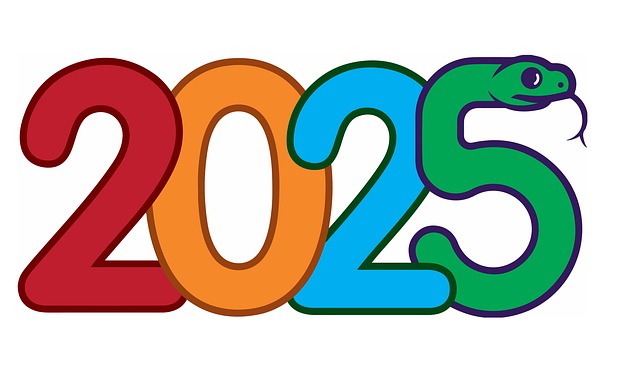In 2025, successful SEO strategies require a deep understanding of evolving user behavior in the digital realm, driven by technological advancements. Key trends include adapting to voice and visual searches, prioritizing mobile-first indexing, and adopting a user-centric approach. Cross-platform SEO emerges as crucial for unified brand messaging across social media, e-commerce, blogs, and forums. Localized strategies, structured data markup, and meta tag optimization cater to mobile users, enhancing engagement and conversions. AI-powered tools automate keyword research and content optimization, enabling specialists to focus on strategic planning and creative content development.
In the dynamic landscape of digital marketing, understanding SEO trends is paramount, especially as we approach 2025. This article explores crucial cross-platform SEO trends shaping search strategies globally. From deciphering evolving user behavior to harnessing the power of voice and visual search, each segment offers insights for maximum online visibility. Discover how mobile-first indexing ensures website longevity and explore AI-driven tools revolutionizing optimization. Embrace these SEO trends in 2025 and stay ahead in the digital race.
The Evolving Search Landscape: Understanding User Behavior in 2025

In the ever-evolving digital landscape of 2025, understanding user behavior is more crucial than ever for effective SEO strategies. With advancements in technology and a proliferation of devices, users now expect seamless, personalized experiences across various platforms—from mobile to voice search. This shift has led to a more complex yet dynamic search environment, where trends like featured snippets, rich results, and increased focus on user intent are reshaping the way we optimize content.
SEO Trends 2025 are largely driven by this changing behavior. Marketers must adapt to a new normal where voice searches and visual queries are on the rise, requiring content creators to be more strategic in incorporating natural language phrases and optimizing for multimedia elements. Additionally, with growing concerns over privacy, search engines are prioritizing secure connections, further emphasizing the need for mobile-first indexing and a user-centric approach to SEO.
Cross-Platform SEO: Unifying Search Strategies for Maximum Impact

In the dynamic landscape of digital marketing, cross-platform SEO stands out as a game-changer in 2025. It involves creating and implementing unified search strategies across diverse online platforms to maximize visibility and engagement for businesses. By leveraging consistent messaging, optimized content, and effective link building across social media, e-commerce sites, blogs, and forums, brands can build a strong online presence that resonates with their target audience. This integrated approach ensures that users encounter a cohesive brand experience regardless of the platform they use to search or engage with content.
SEO trends in 2025 emphasize the importance of localized and mobile-first strategies within cross-platform SEO. With a significant portion of internet users accessing information via mobile devices, optimizing content for local search and ensuring it’s mobile-friendly is crucial. This involves utilizing structured data markup, optimizing meta tags, and creating content that addresses location-based queries and adapts seamlessly to various screen sizes. By embracing these trends, businesses can tap into the vast potential of cross-platform SEO, driving more traffic, improving user experience, and ultimately boosting conversions across all digital touchpoints.
Voice Search Dominance and Its Implications for Content Creation

In recent years, voice search has emerged as a dominant force in the realm of SEO trends 2025. With the widespread adoption of virtual assistants and smart speakers, more users are turning to voice commands for their information needs. This shift has significant implications for content creation; optimizing content for voice search is no longer an option but a necessity. Unlike traditional text-based searches, voice queries tend to be shorter, more conversational, and often include location-based or context-specific terms. Therefore, creating content that resonates with this new user behavior involves incorporating natural language phrases, answering direct questions concisely, and ensuring mobile-friendliness for on-the-go interactions.
As we move forward into the future of SEO, understanding and adapting to voice search dominance will be crucial. Marketers must tailor their strategies to align with how users are increasingly interacting with search engines, focusing on providing quick, relevant answers while keeping content fresh and up-to-date. The evolution of AI and machine learning further emphasizes this trend, as algorithms become more sophisticated in interpreting user intent behind voice commands.
Visual Search and Its Effect on E-commerce Optimization

Visual search is gaining traction as one of the prominent SEO trends in 2025, significantly impacting e-commerce optimization strategies. With advancements in technology, visual search engines like Bing Visual Search and Google Lens are allowing users to find products by simply uploading images or taking photos. This shift towards visual interaction presents unique opportunities for online retailers. By optimizing product listings with high-quality visuals, detailed descriptions, and structured data, businesses can enhance their visibility in visual search results, driving more targeted traffic to their sites.
Incorporating visual elements into SEO strategies is crucial for e-commerce success. Retailers should focus on creating visually appealing product images, ensuring they are optimized for various devices and screen sizes. Additionally, implementing features like interactive 360-degree views, augmented reality (AR) try-on experiences, or even video demonstrations can further elevate the user experience. These visual enhancements not only cater to the growing demand for immersive online shopping but also improve click-through rates, reduce bounce rates, and ultimately boost conversions, making it an essential aspect of SEO trends in 2025.
Mobile-First Indexing: Ensuring Your Website is Future-Proofed

As we move into 2025, Mobile-First Indexing (MFI) remains a crucial SEO trend to watch. This strategy, adopted by search engines like Google, means they primarily use the mobile version of a website for indexing and ranking purposes. Given the ever-increasing number of users accessing the internet via their smartphones, this shift ensures that websites optimized for mobile devices gain a significant advantage in search results. To stay future-proof, it’s essential to ensure your website is responsive, loading quickly on all devices, with content and functionality easily accessible on smaller screens.
By prioritizing mobile users, MFI encourages businesses to create seamless, user-friendly experiences across the board. This trend not only enhances customer satisfaction but also keeps websites relevant in a rapidly evolving digital landscape. As SEO trends evolve, adopting MFI now can help businesses maintain and improve their online visibility, solidifying their position in the competitive market of 2025 and beyond.
AI-Powered SEO Tools: Automating Optimization for Better Results

In the rapidly evolving digital landscape, AI-powered SEO tools are emerging as game-changers in the field of search engine optimization (SEO) Trends 2025. These innovative solutions leverage machine learning algorithms to automate various aspects of SEO, from keyword research to content optimization. By analyzing vast amounts of data, these tools can identify patterns and trends that human analysts might miss, enabling businesses to stay ahead of their competition.
AI-driven SEO optimizes content for search engines with precision and efficiency, ensuring that websites rank higher and faster. These tools can automatically suggest relevant keywords, optimize meta tags, and even create tailored content strategies based on user behavior and market trends. With AI taking over repetitive tasks, SEO specialists can focus more on strategic planning and creative content development, ultimately leading to better search engine rankings and improved user experiences.
